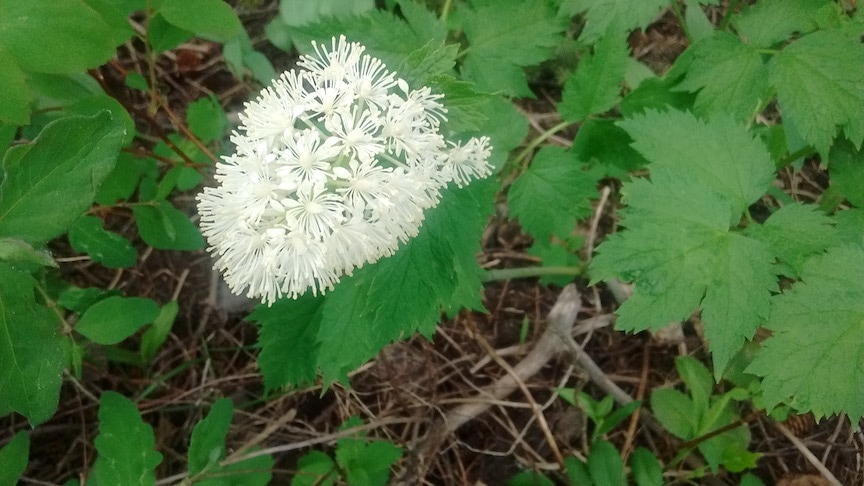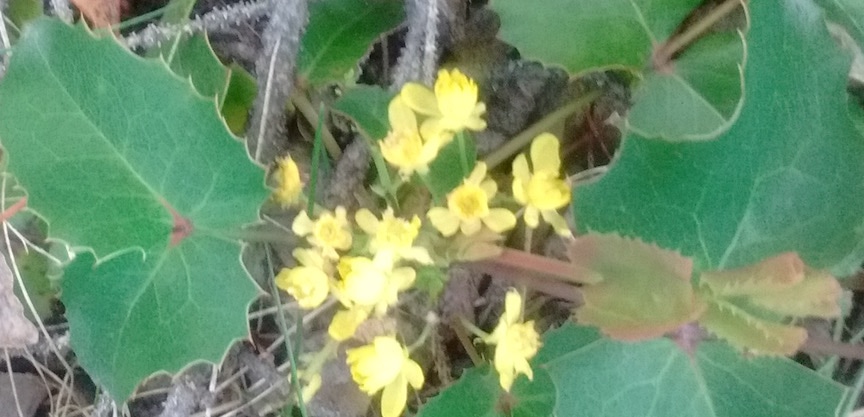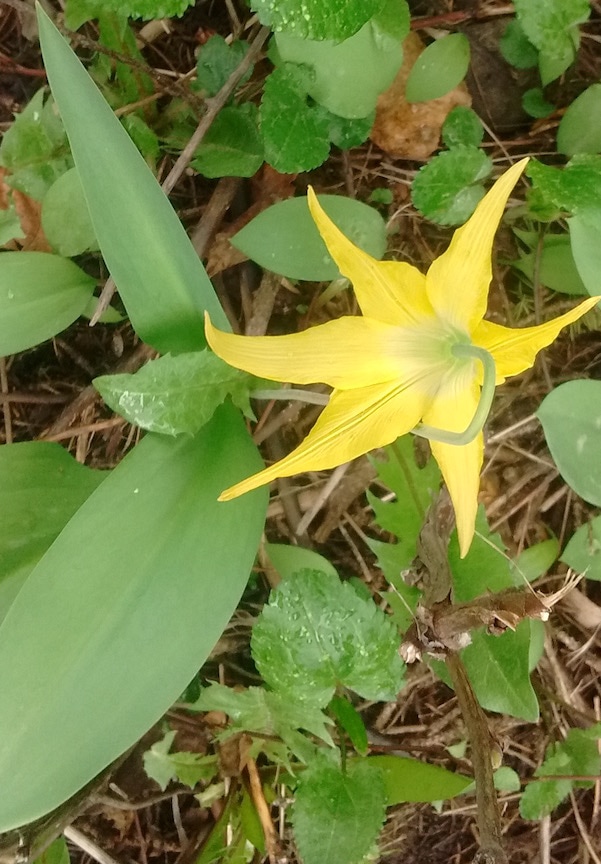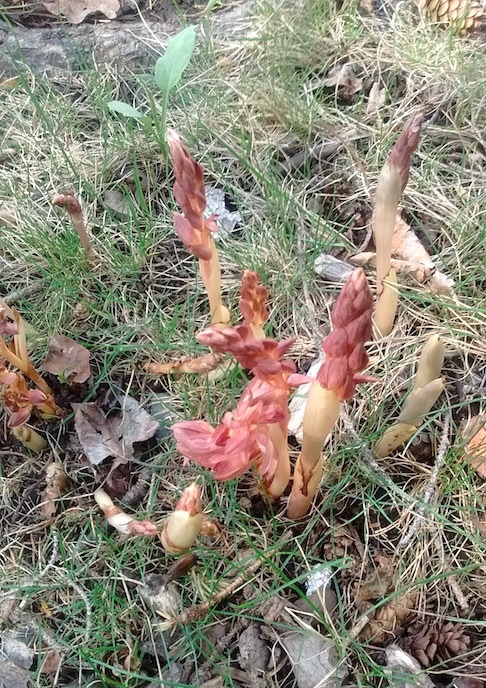Beauty, solitude and stewardship
By Richard Burke
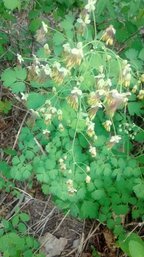
The wildflowers in and around our campsite at Beaver Mines Lake were in their mid-spring splendour, a sure sign we were in the Pentecost season.
You have to walk slowly, with your head down, to notice glacier lilies, low Oregon grape, western distort and columbine, among the eight species we identified, there to appreciate. Of course, you’d have to be interested in these gifts from God, perhaps the most stunning a striped coral root orchid, to recognize this is indeed a special place.
Pentecost is about gifts from God, according to Catechism, led by the gift of the Holy Spirit. It’s difficult not to feel that spirit in this place, but one might conclude many visitors don’t.
Beaver Mines Lake and campground is on the northeastern edge of the Castle Provincial Park and Wildland area, which now protects more than 1,000 square kilometres of southwestern Alberta. Not everyone sees it the same way, apparently, although it seems hordes want to be there.
The most noise these days over the province banning OHV use in five years, and seeking input from Albertans on management of the area, has been from OHV users. They suggest their recreation in the area is not destructive, that they have no impact on the forest and its inhabitants (There are 145 rare plant species in this area, the most biologically diverse in Alberta, also of national and international significance.) Some are there to enjoy the same elements of nature – wildlife, flowers, the mountain themselves – as those who prefer quieter, more reflective activity. They seem to disagree with others who see noisy ATVs as incompatible with stopping to smell the roses.
It’s difficult to get unanimity or even agreement on concepts such as beauty, solitude and stewardship.
In the end, it shouldn’t be about how humans use the area. If we were all to be obedient to at least the first two of the seven Pentecostal gifts, there would be no issue and we’d be concerned mainly with being good stewards.
The first gift, wisdom, offers us the ability to “judge the world in light of the highest end – contemplation of God.” Wisdom helps us love the world “properly, as the creation of God, rather than for its own sake,” according to Catechism.
Close behind wisdom is understanding, which allows us to “see the world in the larger context of the external law and the relation of our souls to God.”
Some call the Castle a paradise, a subjective term with all kinds of connotation. But, paradise in practice invites too many of us to partake, thereby diminishing it to the point where it’s no longer paradise.
As with a lot of other things in our lives, it might be best left in God’s hands.
You have to walk slowly, with your head down, to notice glacier lilies, low Oregon grape, western distort and columbine, among the eight species we identified, there to appreciate. Of course, you’d have to be interested in these gifts from God, perhaps the most stunning a striped coral root orchid, to recognize this is indeed a special place.
Pentecost is about gifts from God, according to Catechism, led by the gift of the Holy Spirit. It’s difficult not to feel that spirit in this place, but one might conclude many visitors don’t.
Beaver Mines Lake and campground is on the northeastern edge of the Castle Provincial Park and Wildland area, which now protects more than 1,000 square kilometres of southwestern Alberta. Not everyone sees it the same way, apparently, although it seems hordes want to be there.
The most noise these days over the province banning OHV use in five years, and seeking input from Albertans on management of the area, has been from OHV users. They suggest their recreation in the area is not destructive, that they have no impact on the forest and its inhabitants (There are 145 rare plant species in this area, the most biologically diverse in Alberta, also of national and international significance.) Some are there to enjoy the same elements of nature – wildlife, flowers, the mountain themselves – as those who prefer quieter, more reflective activity. They seem to disagree with others who see noisy ATVs as incompatible with stopping to smell the roses.
It’s difficult to get unanimity or even agreement on concepts such as beauty, solitude and stewardship.
In the end, it shouldn’t be about how humans use the area. If we were all to be obedient to at least the first two of the seven Pentecostal gifts, there would be no issue and we’d be concerned mainly with being good stewards.
The first gift, wisdom, offers us the ability to “judge the world in light of the highest end – contemplation of God.” Wisdom helps us love the world “properly, as the creation of God, rather than for its own sake,” according to Catechism.
Close behind wisdom is understanding, which allows us to “see the world in the larger context of the external law and the relation of our souls to God.”
Some call the Castle a paradise, a subjective term with all kinds of connotation. But, paradise in practice invites too many of us to partake, thereby diminishing it to the point where it’s no longer paradise.
As with a lot of other things in our lives, it might be best left in God’s hands.
